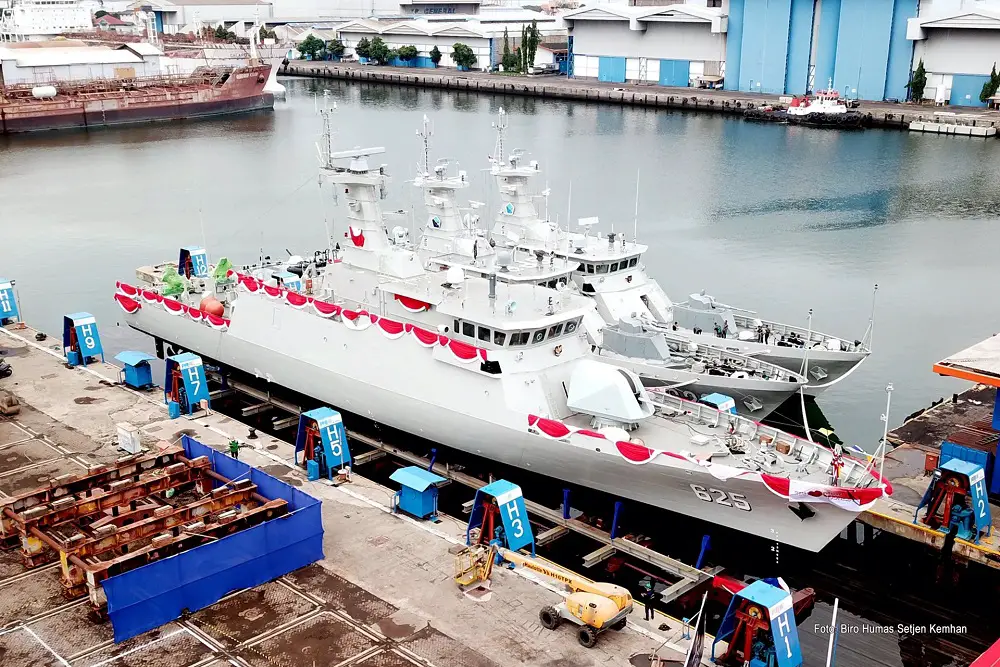The process has been far from conventional. Typically, readying a comprehensive CMS for any navy vessel involves several meetings where specifications and expectations are aligned across the organizations involved. However, with COVID-19 restrictions in place, much of the collaboration has moved online, including the four Factory Acceptance Tests (FAT). PT PAL holds the primary contract for building and delivering the four vessels – two are new builds and two are existing fast attack crafts undergoing a complete upgrade. Among other things, Terma, is contracted to deliver the CMS for the four KCR-60 vessels. Not being able to meet in person has been a challenge, however, the program and the FAT approvals were kept on schedule to the full satisfaction of the customer and project team at both Terma and the Indonesian shipyard, PT PAL.
The four FATs were conducted virtually as so-called “demo FAT’s” towards the end-user. In practice, Terma had performed and completed the full and whole Factory Acceptance Test prior to the actual virtual demo FAT event. Terma’s internal quality representative witnessed and signed off that the result of the Factory Acceptance Test lived up to expectations. During the virtual demo FATs, Terma presented an array of topics selected prior to the event. The topics were explained thoroughly via a Microsoft Teams meeting using handheld cameras. While the two first demo FATs were conducted entirely online, COVID-19 restrictions allowed for in-person attendance at the last two by a London-based and a Berlin-based Indonesian defense attaché respectively. Terma acts as combat system integrator and is responsible for integrating all sensors and effectors onboard the vessels. Furthermore, Terma is contracted to deliver: the C-Flex combat management system, the C-Guard decoy launching system, the C-Fire fire control system, and SCANTER 4603 air & surface surveillance radar for all four KCR-60 vessels.
The KCR-60 are a class of domestically designed and built fast attack craft operated by the Indonesian Navy. The ships also known as Sampari-class fast attack craft and all ships built by local company PT PAL in Surabaya. These ships are made with composition of aluminium and high-tensile steel in hull parts which are also a domestic product obtained from state-owned foundry PT Krakatau Steel in Cilegon. The Sampari class is equipped with Chinese-made SR-47 search radar and TR-47 fire control radar. The later version were equipped with Danish Terma-made radar and fire control system. All four ships are now armed with a Bofors 40 mm as the main gun. For the secondary gun, the ships are armed with two Yugoimport-SDPR M71/08 20 mm cannon at the rear. Sampari-class vessels were equipped with four C-705 anti-ship missiles, the later batch of this ship are expected to bear MBDA anti ship missile solution (Possibly Exocet MM-40 Block III for commonality reason).
To ease operations, Terma has established local offices and employed local staff in both Jakarta and Surabaya, where the vessels are built, with the aim to bring competences and knowhow closer to the shipyard. The local presence is necessary to ensure a smooth collaboration when regular cross-border partnerships are made difficult by the pandemic. While this is Terma’s first larger CMS program in Indonesia, the Danish company has already delivered Combat Suites for other countries in the Asia-Pacific region such as Brunei, Thailand and Australia. More than 10 Navies and Coast Guards in the region rely on Terma’s naval solutions including C-Flex CMS, SCANTER radars and C-Guard Decoy Launching System. With the region boasting some of the world’s longest coastlines, and with countries stretching over vast bodies of water, the need for comprehensive maritime capabilities is critical for protecting against violation of territories and economic exclusion zones.















